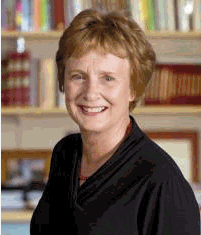
|
|
|
|
|
|
|
News & Views item - May 2010 |
![]() Suzanne Cory Elected Australian Academy of Science President. (May 8,
2010)
Suzanne Cory Elected Australian Academy of Science President. (May 8,
2010)
Suzanne Cory (68) will assume the presidency of the Australian Academy of Science for a four-year term succeeding ANU geophysicist Kurt Lambeck this coming Monday.
Professor Cory led the Walter and Eliza Hall Institute of Medical Research from 1996 to June 2009 when Doug Hilton took over the directorship; however, Professor Cory continues her association with WEHI leading a research laboratory in the institute's Molecular Genetics of Cancer division.
Commenting upon her election to the AAS presidency Professor Cory said: "We live in an increasingly challenging global environment and I believe that Australia's future will in large measure be determined by its capability in the sciences and engineering. The academy must therefore play a major leadership role.
"We must ensure that Australian science grows even stronger and is well-linked internationally. We must stand ready to provide our policy-makers with sound independent scientific advice. And we must nurture the next generation of scientific leaders, by fostering high quality science education in our schools and universities and by inspiring our communities with the heady excitement of scientific discovery."
Until now the Academy has been, on the whole, low key in its public utterances and it will be interesting to see whether or not there will be a discernable change with the installation of its first elected female president.
Perhaps Professor Cory might also consider the following:
There appears to be no proactive system to provide expert advice to federal
parliamentarians regarding science, technology, engineering and mathematics
(STEM). While the parliamentary library will seek information for members
and senators on request and they can ask staff to Google for information, that
places the onus on the parliamentarian who in many if not most cases doesn't
recognise the importance of how scientific understanding should have a profound
effect on forming an opinion on proposed policy (legislation).
Could, or should, the Academy develop a program that is helpful to federal
parliamentarians in a timely fashion? Mightn't it improve both the level of
scientific debate and the scientific community's relationship with parliament.